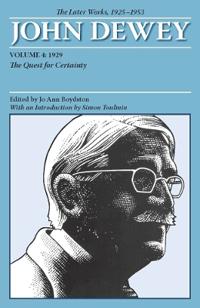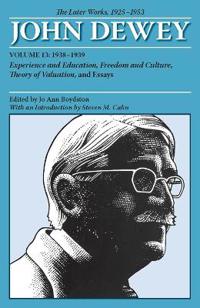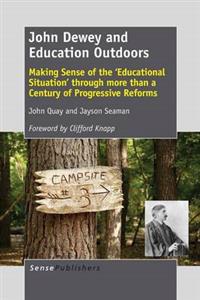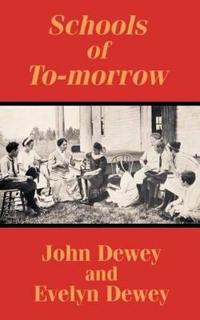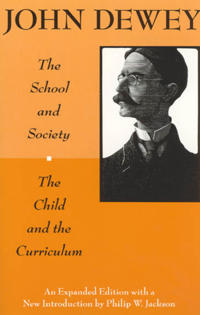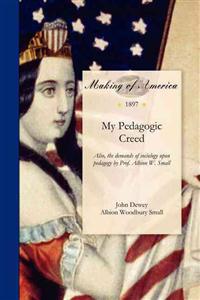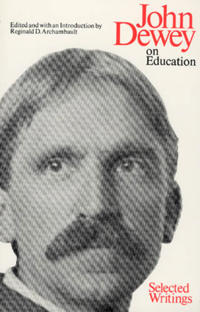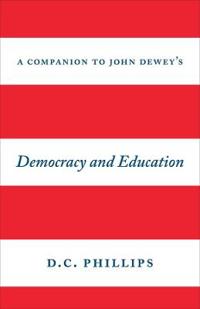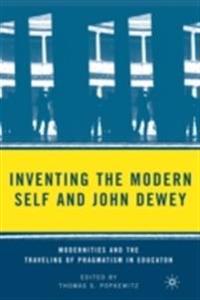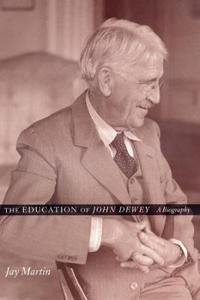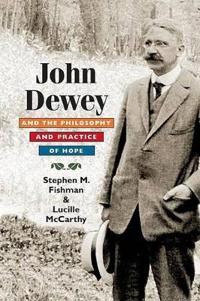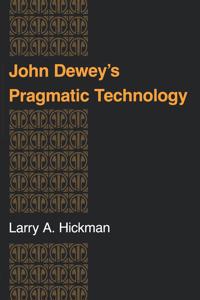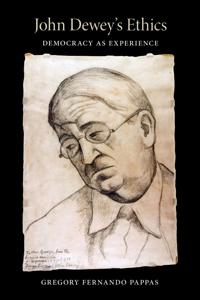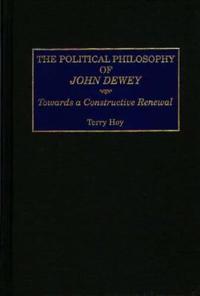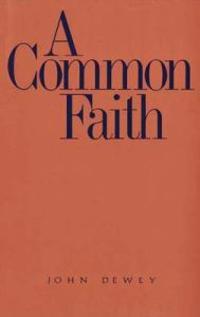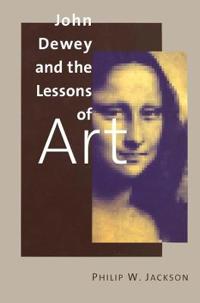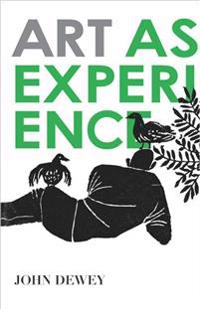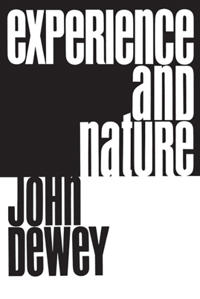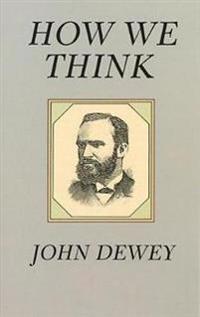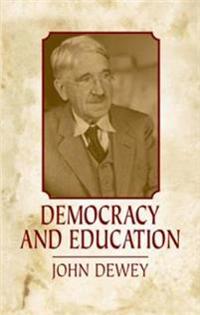The Collected Works of John Dewey (Häftad)
avJohn Dewey
ISBN: 9780809328239 - UTGIVEN: 2008-08This volume includes all Dewey's writings for 1938 except for "Logic: The Theory of Inquiry "(Volume 12 of The Later Works), as well as his 1939 "Freedom and Culture, Theory of Valuation, "and two items from "Intelligence in the Modern World.""" "Freedom and Culture "presents, as Steven M. Cahn poin[...]
John Dewey (Pocket)
avJohn Dewey, Jo Ann (EDT) Boydston, T. Z. (INT) Lavine
ISBN: 9780809328260 - UTGIVEN: 2008-04Schools of To-Morrow (Pocket)
avJohn Dewey, Evelyn Dewey, John Dewey
ISBN: 9781410207258 - UTGIVEN: 2003-07The School and Society and the Child and the Curriculum (Pocket)
avJohn Dewey, Philip W. (INT) Jackson, John Dewey
ISBN: 9780226143965 - UTGIVEN: 1991-09"The School and Society" and "The Child and the Curriculum" succinctly set forth John Dewey's revolutionary philosophy of education as an experimental, child-centered process. For years, educators have turned to this classic volume for insight and practical guidance. Yet Dewey's renown and his endur[...]
My Pedagogic Creed (Häftad)
avJohn Dewey, Albion Woodbury Small, John Dewey
ISBN: 9781458501417 - UTGIVEN: 201106John Dewey on Education
ISBN: 9780226143903 - UTGIVEN: 1974-12In this collection, Reginald D. Archambault has assembled John Dewey's major writings on education. He has also included basic statements of Dewey's philosophic position that are relevant to understanding his educational views. These selections are useful not only for understanding Dewey's pedagogic[...]
A Companion to John Dewey's Democracy and Education
ISBN: 9780226408378 - UTGIVEN: 2016-12This year marks the centenary publication of John Dewey's magnum opus, Democracy and Education. Despite its profound importance as a foundational text in education, it is notoriously difficult and dare we say it a little dry. In this charming and often funny companion, noted philosopher of education[...]
Inventing the Modern Self and John Dewey (Häftad)
ISBN: 9780230605145 - UTGIVEN: 200809Pragmatism provoked both admiration and fear, as global changes brought into the twentieth century provoked a revisioning of the cultural narratives about who the citizen and child are and should be. In a new book edited by Thomas S. Popkewitz, scholars representing twelve nations provide original c[...]
John Dewey: Religious Faith and Democratic Humanism (Inbunden)
avSteven C. Rockefeller
ISBN: 9780231073486 - UTGIVEN: 1991-09-23John Dewey: Religious Faith and Democratic Humanism (Pocket)
avSteven C. Rockefeller
ISBN: 9780231073493 - UTGIVEN: 1994-04-15This introduction to the philosophy of John Dewey emphasizes the evolution of his religious faith and the morality at the heart of his thought. It pays special attention to his radical democratic reconstruction of Christianity and his contribution to American spiritual democracy.[...]
The Education of John Dewey
ISBN: 9780231116763 - UTGIVEN: 2002-12During John Dewey's lifetime (1859-1952), one public opinion poll after another revealed that he was esteemed to be one of the ten most important thinkers in American history. His body of thought, conventionally identified by the shorthand word "Pragmatism," has been the distinctive American philoso[...]
John Dewey and the Philosophy and Practice of Hope
ISBN: 9780252032004 - UTGIVEN: 2007-10Inspiring new techniques for engaging students with democratic ideals "John Dewey and the Philosophy and Practice of Hope" combines philosophical theory with a study of its effects in an actual classroom. To understand how Dewey, one of the century's foremost philosophers of education, understood th[...]
John Dewey's Pragmatic Technology (Pocket)
avLarry A. Hickman
ISBN: 9780253207630 - UTGIVEN: 1992-08This book does much to disple the old canard that John Dewey was guilty of "scientism" and a reverent worship of technological progress. Indeed, Dewey predated the Frankfurt school in his warnings about the dangers inherent in a machine culture. With new advances come new problems, and these can o[...]
John Dewey and Moral Imagination (Häftad)
avSteven Fesmire
ISBN: 9780253215987 - UTGIVEN: 2003-09This title sheds new light on the imaginative process, human emotional make-up and expression, and the nature of moral judgment. It presents a robust and distinctly pragmatic approach to ethics, politics, moral education, and moral conduct.[...]
John Dewey's Ethics (Pocket)
avGregory Fernando Pappas
ISBN: 9780253219794 - UTGIVEN: 2008-06John Dewey, widely known as "America's philosopher," provided important insights into education and political philosophy, but surprisingly never set down a complete moral or ethical philosophy. Gregory Fernando Pappas presents the first systematic and comprehensive treatment of Dewey's ethics. By pr[...]
The Political Philosophy of John Dewey (Inbunden)
avTerry Hoy
ISBN: 9780275963415 - UTGIVEN: 1998-11Terry Hoy seeks to establish the enduring relevance of John Dewey's political philosophy. As Professor Hoy illustrates, Dewey focused on the distortions in American political thought resulting from the Lockean-Utilitarian tradition of classical liberalism; the growing standardization and quantificat[...]
John Dewey and the Lessons of Art (Häftad)
avPhilip W. Jackson
ISBN: 9780300082890 - UTGIVEN: 200003In this provocative book, Philip W. Jackson examines John Dewey's thinking about the arts and its implications for educational practices. Jackson discusses Dewey's aesthetic theory, considers the transformative power of the experience of art, and shows in specific instances how the application of De[...]
Art As Experience (Pocket)
avJohn Dewey
ISBN: 9780399531972 - UTGIVEN: 200507Based on John Dewey's lectures on esthetics, delivered as the first William James Lecturer at Harvard in 1932, "Art as Experience" has grown to be considered internationally as the most distinguished work ever written by an American on the formal structure and characteristic effects of all the arts:[...]
How We Think (Pocket)
avJohn Dewey
ISBN: 9780486298955 - UTGIVEN: 199707One of America''s most prominent pedagogues discusses training students to think well. This educational classic covers inductive and deductive logic, concrete and abstract thinking, and many other aspects of thought training. Essential reading for teachers.
[...]Democracy and Education (Häftad)
avJohn Dewey
ISBN: 9780486433998 - UTGIVEN: 200405The distinguished author of books on psychology, ethics, and politics, John Dewey specialized in the philosophy of education. In this landmark work on public education, Dewey discusses methods of providing quality public education in a democratic society. First published close to 90 years ago, "Demo[...]

